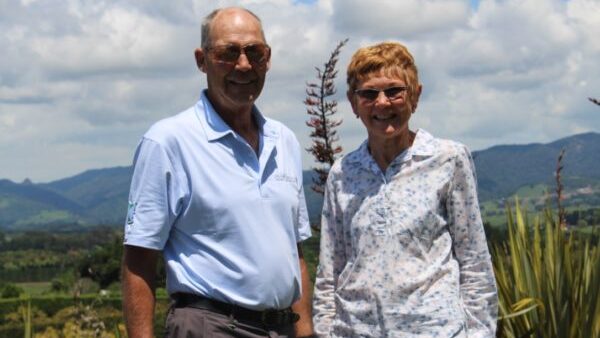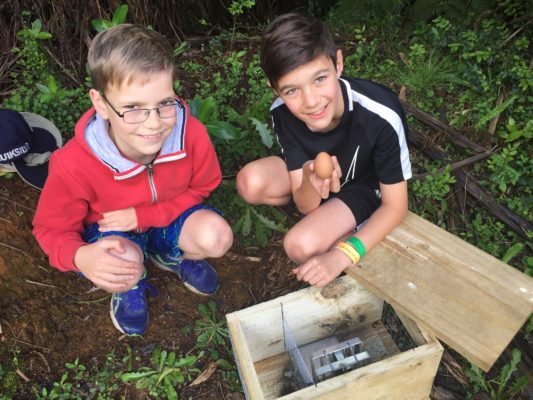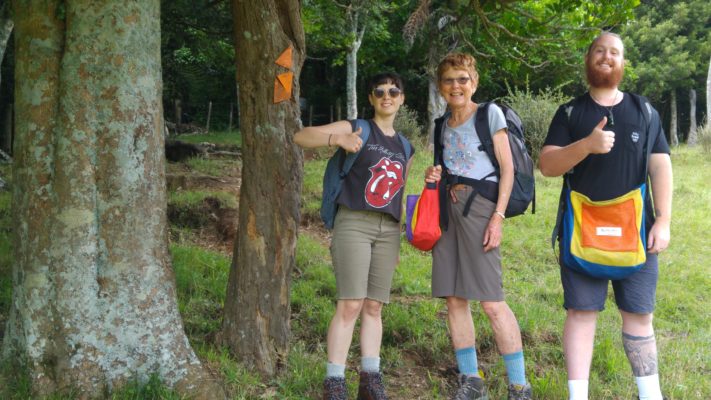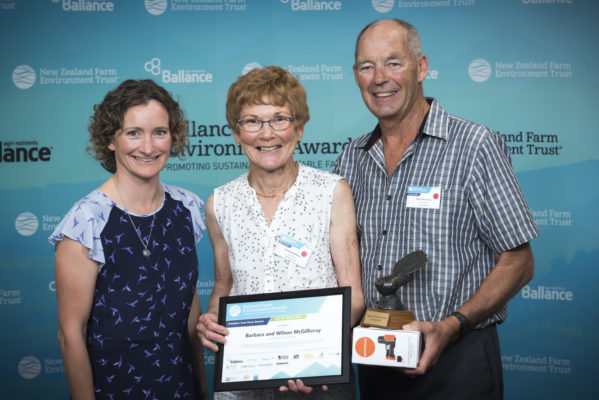When Wilson and Barbara McGillivray announced to friends that they were buying an avocado orchard, the response from one friend was less than enthusiastic.

“He said ‘So you’re going to live on a rat farm!’” recalls Wilson. “Rats love avocados.”
Undaunted, the McGillivrays went ahead anyway and bought Awatea Orchard in Katikati. Having previously lived on a lifestyle bushblock beside Puketoki Reserve, Whakamarama, predator control was nothing new for Wilson and Barbara and they soon began a predator control programme for rats, stoats and possums. As it happened, avocados may not have been the only thing attracting the rats. Cars – about 2000 of them – along with various old household appliances had previously littered the property.”

“The previous owner got rid of the bulk of the cars,” says Barbara, “But the residue works its way to the surface. The grandchildren have fun going on treasure hunts and finding things.”
Some of the grandchildren have been helping out with predator control too.
“Wilson made 10 DOC 200 boxes and gave one each to two different neighbours,” says Barbara, “And our grandson Hamish and his friend Ruben checked the DOC traps during their school holidays. A photo I took of the boys checking the traps won a competition and the prize was a Goodnature A24 trap.”
With the help of the boys, a good spot was soon found to set up the A24 trap as well. The couple are keen to use traps rather than poisons.
“We don’t want to use poisons because of our dog,” Barbara says. “We do a lot of rat control around the shed. With rats you have to keep on to them. People don’t realise that rats climb trees and they don’t realise the damage that hedgehogs do too.”
With a lot of wild cats around initially, the McGillivray’s also set up live capture cat traps. They started to keep a tally of pests killed in early 2017.
“We’ve caught 4 ferrets in total,” says Barbara, “including a big one in the cat trap.”
“Our Jack Russell/Foxy dog got really excited about the ferret,” Wilson adds, “They really stink with a strong musky smell.”
The other 3 ferrets were juveniles and caught in the DOC 200 traps, along with 32 rats and 35 hedgehogs. A possum contractor also caught 31 possums in 3 nights.
Wilson and Barbara have also carried out a lot of restoration planting on the land, using both natives and exotics to retain the land on the steeper slopes and also to provide food for wildlife.

“We have planted a variety of species which we hope will help to feed birds, bees, and other beneficial insects – flaxes, tree lucerne or tagasaste, manuka, five finger and Pittosporum eugenioides which is a good bee food tree in early winter,” says Barbara. “We’re doing the stuff we love from our previous block. Whilst we have to kill introduced species – rats, possums, stoats – but also cats, ferrets and hedgehogs, I am anxious not to promote killing. These ‘pests’ are just like weeds – they are an animal out of its natural environment, and unfortunately they are causing harm to our wildlife.”
It’s a philosophy that also carries over to Barbara’s volunteer work as Chairwoman of the Aongatete Forest Project.
“In 2008 I became involved with Aongatete Forest Project (500 ha) of the Kaimai Range where the group undertakes ground based predator control,(3 – 4 times a year) in an attempt to ‘showcase’ how a healthy forest would look if predator control was carried out in the whole of the Kaimai Forest. I heard about Aongatete Forest Project through a tramping friend,” Barbara says, “and was already volunteering in a small reserve locally Puketoki. I became more involved at AFP after we moved to our avocado orchard in 2011 and became Chairwoman in 2015.”

In both the orchard and the Aongatete Forest Project, Barbara is keen to promote the positive side of predator control.
“We are trying to promote the benefits of strengthening the biodiversity because of pest control,” she says. “On the orchard we see this as increasing numbers of fantails. We do an annual count in June. In the forest we run night walks to introduce the public to the amazing wetas, spiders and other invertebrates found because rat numbers are low.”
Bird numbers are increasing in the forest and other rare species are also being discovered.
“North Island robin were scarce when the project started,” says Barbara, “And now they are numerous. We also ‘discovered’ we have rifleman and they are commonly seen. We are finding we have more of rare plant species than we initially thought and have recently sighted the rare Forest Ringlet (Helm’s Butterfly) in the forest.”
Wilson and Barbara have totally embraced conservation and the need to enhance biodiversity in both their working and personal lives. That dedication to predator control and biodiversity was recognized recently when they became the Bay of Plenty regional winners of the Ballance Predator Free NZ Farm Award.
“We were blown away with the award,” says Barbara. “We were not expecting it and want to thank PFNZ Trust for acknowledging the importance of the work that farmers are doing. For us it is a labour of love.

